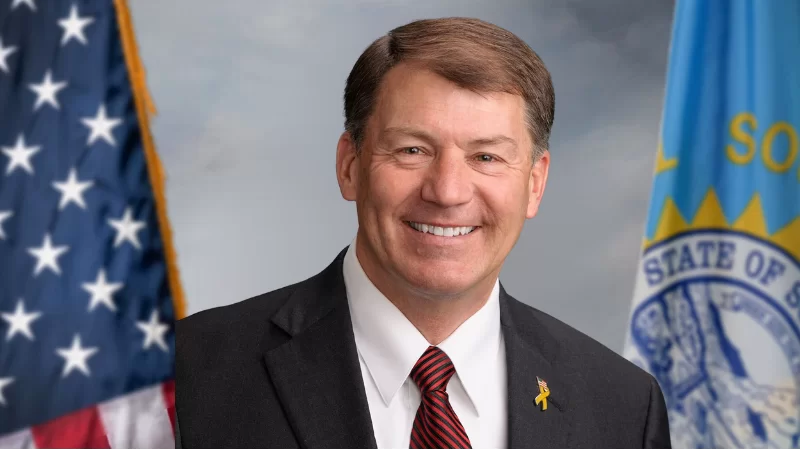Senator Mike Rounds, US Senator for South Dakota | Official U.S. Senate headshot
Senator Mike Rounds, US Senator for South Dakota | Official U.S. Senate headshot
U.S. Senators Mike Rounds (R-S.D.) and Maria Cantwell (D-Wash.) have introduced the Purchased and Referred Care Improvement Act, bipartisan legislation aimed at ensuring that the Indian Health Service (IHS) reimburses tribal members for care sought outside of IHS in a timely manner. The purpose of this legislation is to prevent tribal members from incurring wrongfully charged medical debt when IHS fails to reimburse them for Purchased/Referred Care (PRC) claims within a reasonable timeframe.
The PRC program is an important resource for eligible tribal members, providing additional healthcare options outside of IHS facilities. PRC funds are only available when a patient has no access to direct care at an IHS facility. However, many tribal members face various barriers when attempting to access care outside of IHS, such as residency, notification, and eligibility rules.
The current Indian Health Care Improvement Act mandates that IHS pay outside providers for approved PRC claims within 30 days. However, a 2020 analysis by the Department of Health and Human Services revealed that an estimated 32,000 claims over a 2-year period were not paid within this timeframe. As a result, payments to outside providers are often delayed, leading to medical debt for tribal members.
Senator Rounds emphasized the importance of holding IHS accountable to its commitment of providing healthcare for tribal members. He stated, "Because of the strict standards for PRC claims, approved claims are few and far between. As such, it's crucial that IHS reimburses tribal members for outside care once it's approved."
Senator Cantwell echoed this sentiment, highlighting the financial hardships that delays in medical cost reimbursements have caused for tribal members. She shared, "To fix this, Senator Rounds and I are introducing the Purchased and Referred Care Improvement Act so Tribal patients don't have to worry about being sent to debt collectors or losing points on their credit score while they wait for the federal government to reimburse their provider."
The Purchased and Referred Care Improvement Act is cosponsored by Senators John Thune (R-S.D.), Patty Murray (D-Wash.), and John Hoeven (R-N.D.). Senator Thune emphasized the need for IHS to be accountable to the tribal members they serve, stating, "Tribal members shouldn't have to continue to pay the price for IHS's mismanagement and the administrative failures of the PRC program."
Senator Murray expressed her support for the legislation, noting the unfair impact on tribal members' credit scores due to IHS's late reimbursements. She said, "This legislation is a much-needed fix to an issue affecting the credit of Tribal members in Washington state."
The legislation has also received support from tribal leaders. Scott Herman, President of the Rosebud Sioux Tribe, commended Senator Rounds for introducing the bill, stating, "It is important for the Indian Health Service to handle approved Purchased and Referred Care claims in a timely manner." Frank Star Comes Out, President of the Oglala Sioux Tribe, expressed gratitude for Senator Rounds' leadership on the issue and emphasized that no Native person should be paying for approved Purchased and Referred Care.
The Purchased and Referred Care Improvement Act includes provisions that would require IHS to develop procedures to reimburse beneficiaries for approved PRC services within 30 days if the patient paid out of pocket. It would also allow beneficiaries to submit documentation as evidence when seeking reimbursement and strengthen liability provisions to prevent outside providers from collecting wrongfully charged debt from beneficiaries with approved PRC claims.
This legislation aims to ensure that tribal members receive timely reimbursements for approved outside health care services and holds IHS accountable for providing quality care to tribal communities.


 Alerts Sign-up
Alerts Sign-up